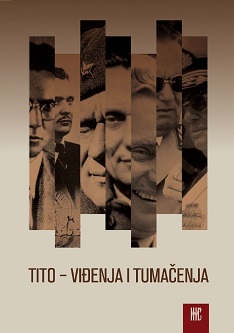„Bratstvo i jedinstvo" u političkom govoru jugoslovenskih komunista 1919-1945. godine
„Brotherhood and Unity" in Political Parlance of the Yugoslav Communists 1919-1945
Author(s): Drago Roksandić
Subject(s): Civil Society, Political history, Interwar Period (1920 - 1939), History of Communism, Sociology of Politics
Published by: Institut za noviju istoriju Srbije
Keywords: Josip Broz Tito; Communist Party of Yugoslavia; brotherhood and unity; political instrumentalization;
Summary/Abstract: The language practice of the Yugoslav antifascism between 1941 and 1945 was symbolically best recognizable in two phrase slogans: „Death to fascism - freedom to the people!" and „brotherhood and unity". None of them was a subject of scholarly research so far. This paper historiographically opens the problem trying to make a critical contribution to reflections on this form of the antifascist heritage. Whereas the slogan „Death to fascism - freedom to the people!" came into being in the years of the fascist ascent on the eve of WWII and was no Yugoslav specialty and disappeared gradually after the war, the slogan „brotherhood and unity" is of much more complicated origin and of longer duration. The subject matter of this paper is the concrete historical contextualization of the slogan and its appropriation by the Yugoslav communists in the time before 1945 when it doubtlessly became one of the legitimizing principles of the FPR/SFR of Yugoslavia. The personal contribution of Josip Broz Tito to the formulation of the „brotherhood and unity" slogan in the late 1930s during the People’s Front strategy of the Communist International and redefinition of its relation towards Yugoslavia is in the focus of the author’s attention. The slogan reached the peak of its mobilization and emancipation potential in 1943/44 in the People’s Liberation Movement and the formation of the AVNOJ Yugoslavia. Further appropriations of the „brotherhood and unity" principle however conducive to the development of the Yugoslav federalism, were limited by one-party and mandatory nature of the political system and the charismatic status of Josip Broz Tito that were instrumentalized by the Yugoslav communists, even to the level of political repression, and thereby its negation.
Book: Tito - Viđenja i tumačenja
- Page Range: 28-42
- Page Count: 15
- Publication Year: 2011
- Language: Serbian
- Content File-PDF

